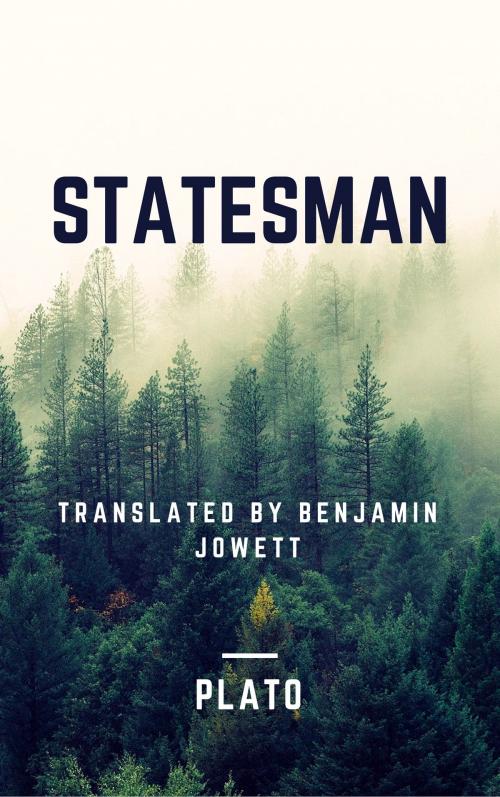| Author: | Plato | ISBN: | 1230001419108 |
| Publisher: | Consumer Oriented Ebooks Publisher | Publication: | November 8, 2016 |
| Imprint: | Language: | English |
| Author: | Plato |
| ISBN: | 1230001419108 |
| Publisher: | Consumer Oriented Ebooks Publisher |
| Publication: | November 8, 2016 |
| Imprint: | |
| Language: | English |
*This Book is annotated (it contains a detailed biography of the author).
*An active Table of Contents has been added by the publisher for a better customer experience.
*This book has been checked and corrected for spelling errors.
The Statesman, also known by its Latin title, Politicus, is a Socratic dialogue written by Plato. The text describes a conversation among Socrates, the mathematician Theodorus, another person named Socrates (referred to as "Young Socrates"), and an unnamed philosopher from Elea referred to as "the Stranger" (xénos). It is ostensibly an attempt to arrive at a definition of "statesman," as opposed to "sophist" or "philosopher" and is presented as following the action of the Sophist.
According to John M. Cooper, the dialogue's intention was to clarify that to rule or have political power called for a specialized knowledge. The statesman was one who possesses this special knowledge of how to rule justly and well and to have the best interests of the citizens at heart. It is presented that politics should be run by this knowledge, or gnosis. This claim runs counter to those who, the Stranger points out, actually did rule. Those that rule merely give the appearance of such knowledge, but in the end are really sophists or imitators. For, as the Stranger maintains, a sophist is one who does not know the right thing to do, but only appears to others as someone who does. The Stranger's ideal of how one arrives at this knowledge of power is through social divisions. The visitor takes great pains to be very specific about where and why the divisions are needed in order to properly rule the citizenry.
*This Book is annotated (it contains a detailed biography of the author).
*An active Table of Contents has been added by the publisher for a better customer experience.
*This book has been checked and corrected for spelling errors.
The Statesman, also known by its Latin title, Politicus, is a Socratic dialogue written by Plato. The text describes a conversation among Socrates, the mathematician Theodorus, another person named Socrates (referred to as "Young Socrates"), and an unnamed philosopher from Elea referred to as "the Stranger" (xénos). It is ostensibly an attempt to arrive at a definition of "statesman," as opposed to "sophist" or "philosopher" and is presented as following the action of the Sophist.
According to John M. Cooper, the dialogue's intention was to clarify that to rule or have political power called for a specialized knowledge. The statesman was one who possesses this special knowledge of how to rule justly and well and to have the best interests of the citizens at heart. It is presented that politics should be run by this knowledge, or gnosis. This claim runs counter to those who, the Stranger points out, actually did rule. Those that rule merely give the appearance of such knowledge, but in the end are really sophists or imitators. For, as the Stranger maintains, a sophist is one who does not know the right thing to do, but only appears to others as someone who does. The Stranger's ideal of how one arrives at this knowledge of power is through social divisions. The visitor takes great pains to be very specific about where and why the divisions are needed in order to properly rule the citizenry.















